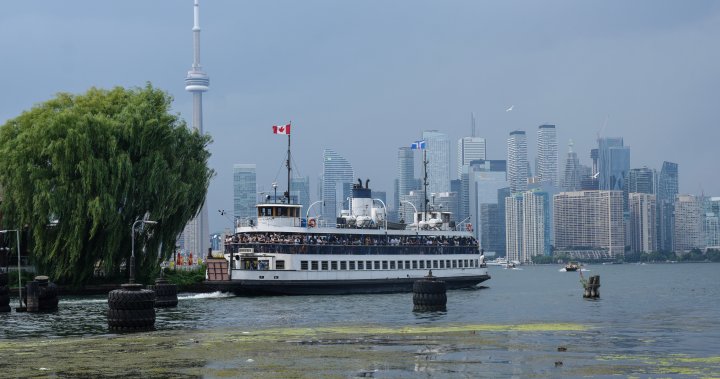Fresh questions are being raised about the safety and reliability of Toronto’s aging fleet of ferries after yet another crash was reported while one of the boats was attempting to dock downtown. The incident, described as a “mechanical issue,” forced officials to take the boat out of service and has caused concerns about the regularity and safety of island access. Emergency services were called to the Toronto Island Ferry Terminal to respond to reports of a ferry crashing into the dock. Fortunately, no injuries were reported, but the incident has prompted a thorough investigation into the cause of the crash.
In mid-August, the Transportation Safety Board of Canada released a report on a crash from August 20, 2022, that left 12 people injured, five of whom needed hospital treatment for minor injuries. The report concluded that on that day, the ferry arrived late and approached the terminal at a higher speed, leading to the crash. It was found that the ferry’s propulsion system was not sufficient to prevent the crash upon docking. These incidents have highlighted concerns about the safety and efficiency of Toronto’s aging ferry fleet, which has been in service for decades.
Throughout the warm summer months when demand for travel to the island is highest, Toronto has faced repeated complaints about long queues to board the ferries and a lack of service. In June, unrest peaked when two of the city’s four ferries were out for repairs for over a month, causing delays and frustration among passengers. The city’s ferry fleet, which transports over 1.4 million passengers annually, is considered an essential service for Toronto Island residents and visitors. However, the vessels are between 50 to 100 years old, surpassing the average industry lifespan, leading to concerns about their safety and reliability.
Toronto has initiated plans to replace its diesel-powered fleet with electric vessels, a process expected to be completed by 2026. The decision to transition to electric ferries was made in 2022, with the selection of Damen Shipbuilding from the Netherlands to build the vessels at a cost of $92.2 million. This decision was made in light of rising costs for materials and environmental concerns surrounding diesel-powered vessels. Despite the ongoing replacement process, the current issues with the aging ferry fleet continue to impact island access and raise questions about passenger safety.
The recent incidents involving the Toronto ferries have sparked discussions about the need for improved safety measures and more reliable transportation options for island residents and visitors. The city is committed to addressing these concerns and ensuring that all three island destinations are served efficiently and safely. The ongoing investigations into the recent crashes will provide valuable insights into the issues affecting the aging ferry fleet and help inform future decisions regarding fleet maintenance and replacement. As Toronto works towards modernizing its ferry system, the goal is to provide a reliable, sustainable, and safe transportation option for all passengers traveling to and from the city’s islands.


